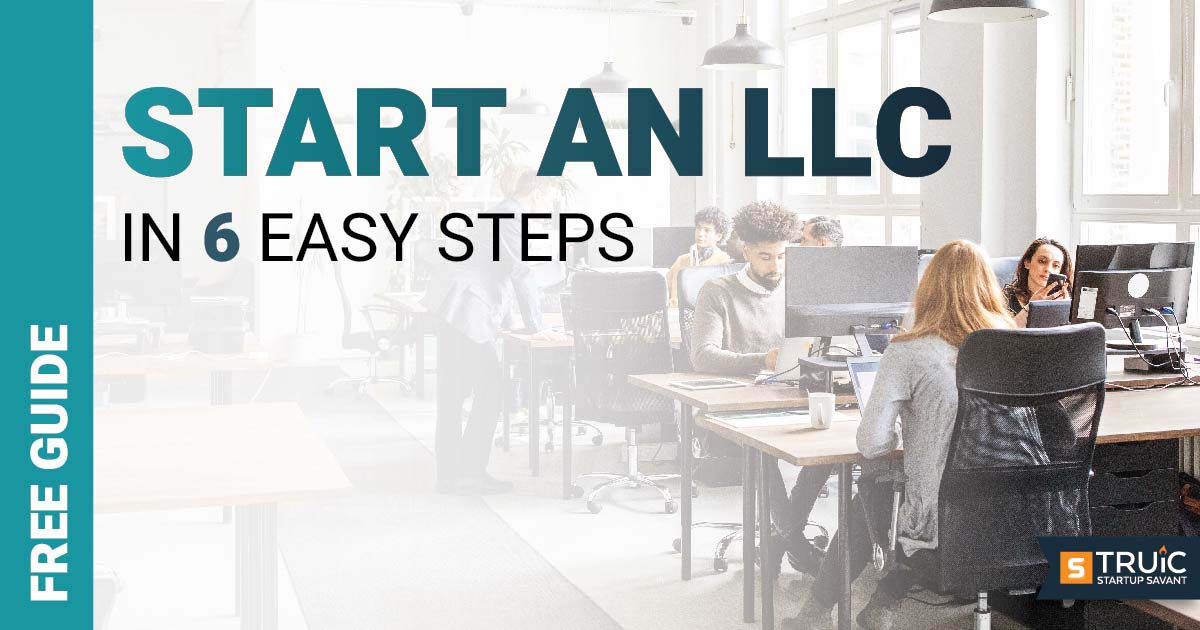![]() The term “business taxes” instills fear in many entrepreneurs. New laws are implemented every year, and odds are you’re too busy running your company to keep up with the insanely complex tax code.
The term “business taxes” instills fear in many entrepreneurs. New laws are implemented every year, and odds are you’re too busy running your company to keep up with the insanely complex tax code.
Regardless, you have to carve out time to learn the basics if you want your business to survive and thrive. In this article we’ll outline the fundamentals of small business taxes, talk about some DIY resources, when you should outsource, and more. Enjoy!
1) Why It's Important
Fun fact: it wasn’t murder or organized crime that brought down Al Capone—it was tax evasion. If that doesn’t convince you of the importance of taxes, I don’t know what will!
Before we even get started, here are a few things you need to understand:
- Feigning ignorance isn’t helpful.
- Denying the realities of business taxation won’t get you anywhere.
- You don’t need to become a tax expert to do your taxes correctly.
- You will need a working knowledge of the tax system, business law, and tax preparation/filing.
- There are countless tools and services you can leverage to make it easier.
They’re a fact of doing business you can’t ignore. The only way to get some peace of mind about your business taxes is to learn how to deal with them properly!
2) Start With The Basics
HOBBY OR BUSINESS
Tax obligations vary based on a number of factors, one being whether your “business” is legally considered a business or a hobby.
STATE TAX INFO
When it comes to taxes, each state is unique. You don’t have to understand the entire tax system for your area, but you should have a grasp on your minimum legal obligations. Keep in mind that you may be responsible for paying taxes for other locations if you’re buying equipment or serving customers out of state!
Do You Have to Pay EU VAT Taxes?
The EU VAT is a value added tax on products and services within the European Union. You might be thinking, “what does that have to do with me?” Funny thing—just because your business isn’t physically located in the EU doesn’t mean you’re not liable for this tax. In fact, new EU VAT implications for U.S.-based digital businesses arose in 2015, leaving many business owners in all kinds of trouble.
The EU now collects this tax based on the customer’s location rather than the seller’s. That means if your American digital business sells to a customer in the UK, you have to pay VAT. If you plan on selling to customers in the EU, make sure you’re using an eCommerce platform that handles VAT automatically!
- Learn more here – VAT: Businesses Supplying Digital Services to Private EU Consumers
Employees, Self-Employed, Contractors & Freelancers
How you structure your business and pay your workers is super important when it comes to taxes. Many small businesses use “contractors” or “freelancers” instead of “employees” for tax purposes. Here are some resources for finding out the implications of each:
Be sure you understand the tax ramifications before you hire any employees. Maybe you’d be better off working with independent contractors, or maybe you need real employees in order to grow. Either way, it’s important to make a well-informed decision.
3) How To Stay Organized
Whether you outsource or do your taxes independently, organization is key. You don’t want to risk losing potential deductions, or spend weeks chasing down lost receipts.
Luckily we’ve moved past the era of stuffing receipts into shoe boxes—now we can track the majority of our finances digitally. Below are some apps/programs you can use to stay organized throughout the year so you’ll be prepared for tax season.
1) Evernote has tons of awesome features! Check out Expense Tracking Made Easy With Evernoteto get an idea of what they offer.
2) Shoeboxed helps with expense reporting, accounting, bookkeeping, and tax preparation. Take a look at Shoeboxed’s Definitive Guide to Commonly Missed Small Business Tax Write-offs.
3) Mint can help you get a quick handle on your finances. Mint does all the work of organizing and categorizing your spending—for free! See 5 Ways Mint.com Helps at Tax Time for more information.
4) Expensify is a painless way to keep track of your expenses. A major bonus: it integrates with Xero and QuickBooks seamlessly! Check out How Do You Expensify: Tracking Tax Deductible Expenses.
5) Xero is a super user-friendly accounting service that’s ideal for businesses with employees or bank accounts in other countries. Plus, it integrates with hundreds of add-on business apps. Check out their Add-On Marketplace.
6) QuickBooks Online is basically the king of small-business accounting software. It’s cheaper than Xero and has way too many features to list. Their small-business tax support that makes them stand out in the crowd—check out Schedule C for Small Business Owners: 6 Tips to Make Tax Time a Breeze!
The Best DIY Tax Filing Softwares
If you plan to take the DIY approach to your business taxes, there are some great programs out there to help lighten your load. Are they for everyone? No. But they’re fast, credible, affordable, and they’ll hold your hand through the entire process. Here are some of our favorite business tax software options:
1) Turbo Tax Business is a super easy step-by-step program. They search over 350 tax deductions for you to make sure you get the maximum deduction and refund. Their Audit Support Guarantee is also a great feature—although hopefully you’ll never have to use it! Check out their article Little-Known Tax Tips For Small-Business Owners.
2) H&R Block has free in-person audit support, maximum refund guarantee and unlimited tax advice by phone or chat. Like TurboTax, it’s a simple process. Their Premium option is best for and rental property owners and self-employed folks. Read their Five Important Tax Implications of Starting Your Own Business!
3) TaxACT, another online tax platform, has different options depending on the size of your business. Check out You Got This Weekly Series: The Tax Implications of Investing in a Business.
The great thing about these services is that you can mess around with them before actually committing. You’re not under any obligation to pay them a dime if it ends up being too complex or complicated.
If you’re not confident, don’t do it—but if you find it simple and straightforward, save yourself some money and give it a shot!
4) When To Call In A Pro
Sure, the DIY approach works for some, but if your tax situation is complicated or unusual in any way, you’ll probably need to hire a professional to handle your business taxes.
There are many types of professionals in this industry and it’s important to hire the one that best suits your needs. Let’s take a look at the different types now!
BOOKKEEPERS
Bookkeepers can manage daily financial transactions like paying bills, making deposits, producing invoices and completing payroll—but they aren’t qualified to handle your taxes. Bookkeepers aren’t required to have a college degree. They’re the folks who prepare your business information for the tax professionals.
ACCOUNTANTS
Accountants are qualified to prepare your business taxes, and take care of your bookkeeping too. To become an accountant, a person must have a bachelor’s degree in accounting or some form of finance.
As far as taxes are concerned, accountants can:
- Prepare and file tax forms
- Help plan taxes and give advice on certain business decisions
- Offer audit assistance
Get a free tax consultation with 1-800Accountant.
TAX ATTORNEYS
Tax attorneys, or CPAs (Certified Public Accountants), specialize in tax law. As accountants and legal tax advisors, they can assist with:
- Filing a lawsuit against the IRS
- IRS lawsuits against you
- Business startups with complex tax requirements
- International business and tax laws
- Criminal IRS investigations against you
Unless your small business is involved in some type of IRS action, you shouldn’t need to hire a tax attorney.
outsourcing isn't the complete answer
When you sign your tax documents, you legally become the responsible party for the information on them. Whoever prepares your taxes is also responsible, but if something goes wrong, it’s your name on the line.
This isn’t to say you shouldn’t outsource—it’s definitely a viable option, especially if you’re not comfortable handling your business taxes on your own. Just keep in mind that there are dishonest people in this world, so outsourcing your taxes isn’t something to be taken lightly.
Ask around for recommendations from trustworthy business associates before you hire anyone to handle your taxes, and make sure to review documents before signing them! You simply can’t afford to have zero knowledge of your business taxes.
5) Wrapping Up & Staying Compliant
"In this world nothing can be said to be certain, except death and taxes." - Benjamin Franklin
Business taxes are a necessary evil. You can’t outrun the tax man.
Once you have a working knowledge of your tax situation, you’ll be able to make the best decisions for your business and avoid getting into legal trouble.
Figure out what resources you can leverage to make this process easier. It doesn’t have to be overwhelming if you start planning now. You’ve got this! Cheers!
Meet The Author: Liesha is a small business owner of 20 years, the owner of a karate dojo in Maine, and creator of Microbusiness Essentials. During free time she's with her family and working on a Doctorate in Entrepreneurship.



